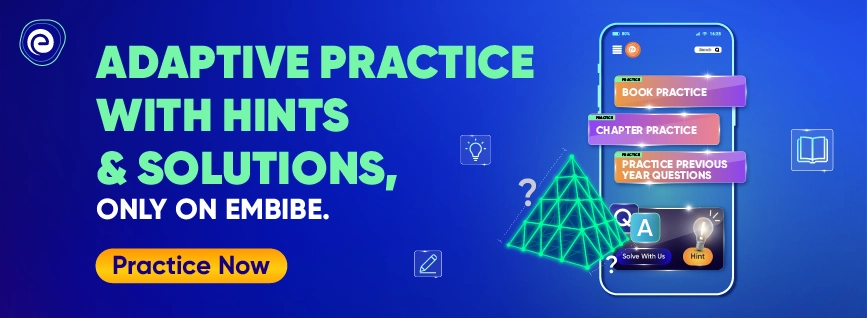- Written By
Aaron_K
- Last Modified 15-05-2023
IBPS RRB PO Quantitative Aptitude Trend Analysis
IBPS RRB PO is a popular banking test given by the Institute of Banking Personnel Selection (IBPS) to hire Probationary Officers (PO) in Regional Rural Banks (RRBs). Quantitative Aptitude is an important part of the IBPS RRB PO test, and many candidates find it one of the most challenging parts. In this article, we’ll look at how the Quantitative Aptitude part of the IBPS RRB PO test has changed over time.
Overview of the Quantitative Aptitude Section
In the Quantitative Aptitude part of the IBPS RRB PO exam, candidates must show how good they are with numbers. It has 40 questions that are worth a total of 50 points, and you have 45 minutes to finish it.
The part talks about things like figuring out what the numbers mean, simplifying them, getting close to them, quadratic equations, number series, profit and loss, time and work, time, speed, and distance, simple and compound interest, ratio and proportion, averages, mixtures and combinations, and probability.
Trends of the Quantitative Aptitude Section
Over the past few years, there have been some changes to the Quantitative Aptitude part of the IBPS RRB PO test. Here’s a quick look at the section’s main trends:
1. Level of Difficulty: The Quantitative Aptitude part has been moderate to tough in the past few years. The questions are meant to test the candidates’ ability to think critically and do maths. The difficulty level changes yearly, and applicants should be ready to handle any level.
2. Subjects: The Quantitative Aptitude part covers a lot of different subjects. Data Interpretation, Simplifying, and Approximating are the most common themes on the test, and they are worth more points. To do well on this part, candidates must know much about these things. Other important topics include quadratic equations, number series, profit and loss, time and work, speed and distance, simple and compound interest, ratio and proportion, averages, mixtures and alignments, and probability.
3. Managing Your Time: Managing your time is an important part of the IBPS RRB PO Quantitative Aptitude section. There are 40 questions in this part, and candidates only have 45 minutes to answer them. This means that candidates have less than a minute to answer each question. So, it is important to answer the questions quickly and correctly.
4. Changes to the Way the Test Is Set Up: In 2020, IBPS made a big change to how the Quantitative Aptitude Test is set up. From 50 questions, there are now only 40, and from 50 points, there are now only 40. This means that each question is worth one mark instead of 1.25. The 45 minutes set aside for the part stayed the same. Because of this change, the part is now easier than it was before.
Analysis of Quantitative Aptitude Questions Year-wise
One of the most important parts of the IBPS RRB PO test is called “Quantitative Aptitude.” It has questions about numbers, math, geometry, reading and analysing data, and analysing data. This part aims to see how good a candidate is with numbers and how well they can solve problems. Let’s look at how Quantitative Aptitude questions have changed over the past few years in the IBPS RRB PO test.
2018
The Quantitative Aptitude part of the 2018 IBPS RRB PO test was about as hard as average. The part had 40 questions about maths, figuring out what the numbers mean, and putting them in order. The questions were complicated and took a lot of time, so a candidate who was good at maths and knew how to manage their time could do well in this part.
2019
The Quantitative Aptitude part of the 2019 IBPS RRB PO exam was between easy and hard. The part had 40 questions on Data Interpretation, Quadratic Equations, Simplifying, and Arithmetic. Questions were math-based and tricky; a good understanding of theory and practice was needed to do well in this part.
2020
The Quantitative Aptitude part of the 2020 IBPS RRB PO test was about as hard as average. There were 40 questions in part: Number Series, Data Interpretation, Arithmetic, and Quadratic Equations. The questions were complicated and took a lot of time, so a candidate who was good at maths and knew how to manage their time could do well in this part.
2021
The Quantitative Aptitude part of the 2021 IBPS RRB PO exam was between easy and hard. The part had 40 questions on Data Interpretation, Quadratic Equations, Simplifying, and Arithmetic. Questions were maths-based and tricky; Candidates needed a good understanding of the topics, and they had to have good practice to do well in this part.
Conclusion
Candidates who want to work at Regional Rural Banks must do well on the Quantitative Aptitude part of the IBPS RRB PO exam. In this section, candidates can do well if they are good at maths, know how to handle their time well and understand theory and practice.
Over the years, the section’s level of challenge has stayed the same, and the same topics have been covered: arithmetic, data analysis, quadratic equations, and number series. You should study these topics and practice answering questions to do well on the Quantitative Aptitude part of the IBPS RRB PO exam.
We hope this post was helpful to you. Embibe wants the best for you and hopes you do well on the test. If you have questions about this piece or the test, check out the Embibe app. We’ll be glad to help you out.
Keep an eye on Embibe to find out what’s going on with the IBPS RRB PO exam in 2023.








































